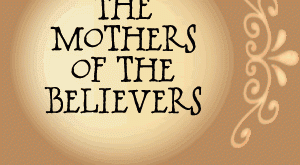Source: onislam.net
A new large scale British survey has revealed a notable increase in the number of young British people adhering to Islam coupled with a dramatic decline in those believing in Christianity in the same age group.
“The large number of young people identifying as Muslims – much larger than previous generations – suggests that Islam will soon be a much more significant force in this country than it is at the moment,” Terry Sanderson, President of the National Secular Society, said on his group’s website on Tuesday, September 10.
“This confirms the rapid downward trend among Christians and bodes extremely ill for the future of that religion in Britain,” he added.
Released earlier this month, the poll of more than 20,000 people was commissioned by Lord Ashcroft, the former Conservative party deputy chairman.
Titled, “Small island: Public opinion and the politics of Immigration,” the poll was mainly about attitudes to immigration.
Yet, it included a question asking: “To which of the following religious groups do you consider yourself to be a member of?” (sic).
The response across all categories found that 55% of the surveyed said they were Christian with 36% saying they had no religion.
In the 18-24 age group, 46% said they had no religion while 33% said they were Christian.
The general response among those who identified as Muslim was 3%, but this rose to 11% among the 18-24 age group.
Hindus came to 1%, rising to 3% in the 25-34 age group.
Other religions were much less statistically significant.
The results coped with earlier results published in December 2012.
Among British people, there were 33.2million claiming to be Christian, down from 37.3million in 2001. The figure made up just 59 per cent of the population.
The census found that the proportion of Muslims also rose from 3.0 percent to 4.8 per cent, becoming the fastest growing religion in Britain.
The 2001 census put the number of British Muslims at nearly 2.5 million.
Religion Decline
Another survey has reflected a notable decrease in the number of people adhering to religions in general.
In relation to religion over the past thirty years “there is little doubt that a substantial change has taken place, with a marked decline in the proportion who describe themselves as belonging to a particular religion,” the authors of the British Social Attitudes Survey’s 30th annual report, published this week, wrote.
“In 1983, around two in three people (68%) considered themselves to belong to one religion or another; in 2012, only around half (52%) do so.
“This decline is in practice a decline in attachment to Anglicanism; in 1983 two in five people (40%) said they were Anglican, and the Church of England could still reasonably lay claim to being England’s national church (and thus, arguably, to some extent its fount of moral authority). But now only 20% do so.
“In contrast, the proportion saying they belong to a religion other than Christianity has tripled from two to six%. Britain’s religious landscape has not only become smaller but also more diverse,” they added in the survey that measured the level of religious adherence in UK on a small sample of only 3000.
Sanderson, the president of the National Secular Society, said that the figures strengthen the case for disestablishment of the Church of England.
“It is a well-known phenomenon that when answering pollsters’ questions, people tend to overstate their religious allegiance, so it is likely that these figures are very much on the conservative side,” he said.
“It is probable that religious adherence is actually much lower than these already catastrophic figures indicate.
“It is hard to know how much more evidence politicians need before they face the fact that England’s established church has become an anachronism that has no place in a modern democracy.”
The numbers of non-believers have been on the rise across Europe and the United States.
A 2005 survey published in Encyclopedia Britannica put non-believers at about 11.9 percent of the world’s population.
An official European Union survey recently said that 18 percent of the bloc’s population do not believe in God.
The Washington Post reported in September that atheist movements were growing across Europe, lobbying hard for political clout and airtime.
Post Disclaimer | Support Us
Support Us
The sailanmuslim.com web site entirely supported by individual donors and well wishers. If you regularly visit this site and wish to show your appreciation, or if you wish to see further development of sailanmuslim.com, please donate us
 Donate
Donate
IMPORTANT : All content hosted on sailanmuslim.com is solely for non-commercial purposes and with the permission of original copyright holders. Any other use of the hosted content, such as for financial gain, requires express approval from the copyright owners.
 Sri lanka Muslims Web Portal Sri Lanka Muslims News Center
Sri lanka Muslims Web Portal Sri Lanka Muslims News Center
 Donate
Donate


